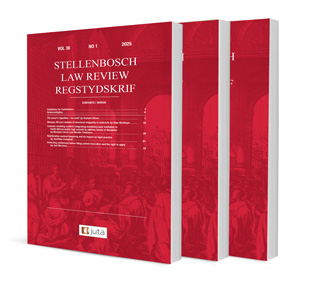
Relationship-centred lawyering and its impact on legal practice
Author: Jonathan Campbell
ISSN: 1996-2193
Affiliations: BA LLB (UCT) LLM, Associate Professor, Faculty of Law, Rhodes University
Source: Stellenbosch Law Review, Volume 36 Issue 1, 2025, p. 61-78
https://doi.org/10.47348/SLR/2025/i1a4
Abstract
This contribution emphasises the human factor in the relationship between lawyer and client. It submits that traditional “client-centred lawyering”, which foregrounds the paramount interests of the client, has considerable value but does not go far enough. “Relationship-centred lawyering” (or “relational lawyering”) extends the focus beyond the interests of the client to the relationship between lawyer and client. According to this approach the building of trust and rapport is foundational to a successful professional relationship.
Four key characteristics define relational lawyering: (i) the background contexts of both the client and the lawyer, and the personalities, values, preferences (and more) that each brings into the interactions between them; (ii) the importance of non-legal issues that can determine (in whole or in part) the strategy adopted and even the preferred outcome; (iii) a partnership between lawyer and client that allows for collaborative problem-solving, since the client knows best the facts of the case but also her needs and preferences, with the emphasis on the importance of client autonomy in decision-making; and (iv) a range of psychological matters, including interpersonal literacy, emotional intelligence and empathy in the lawyer-client relationship.
A range of skills and values are required to practice relational lawyering, known as “relational competencies”. These competencies are not widely practiced or understood by lawyers, and usually they are not explicitly included in law curricula. This contribution argues that there is a need for relational skills and values to be taught in law schools so that these valued competencies can aid graduates in serving the best interests of their clients in their future careers.